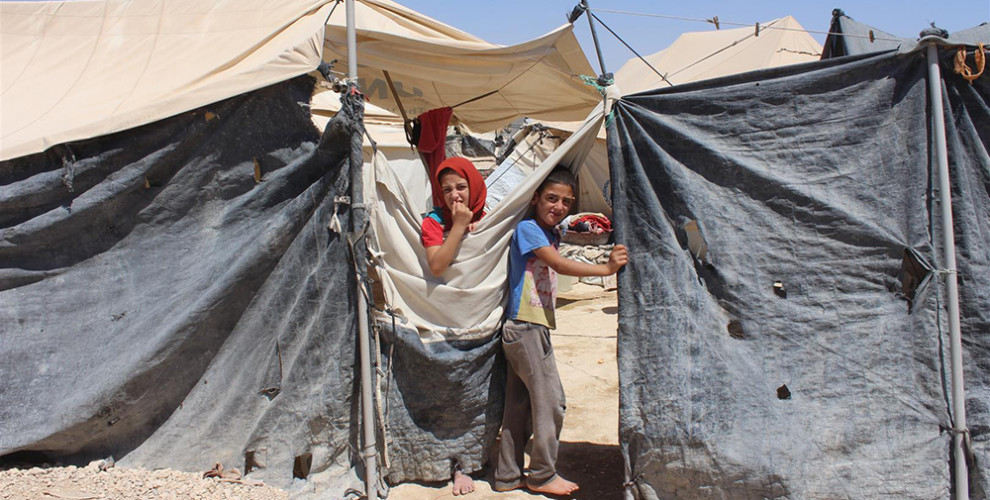Hawl Camp refugees call on international agencies to help
Refugees are only helped by Democratic Autonomous Administration.
Refugees are only helped by Democratic Autonomous Administration.

The Hawl Camp, at the border between Syria and Iraq, was established on 9 March 2016 by the Migration Affairs Council affiliated to the Social Affairs Council. The camp is located 1 km south of Hawl town, 20 km east of Heseke.
After the occupation of Mosul by the DAESH (ISIS) mercenaries, migration also increased, but South Kurdistan government closed its doors to refugees.
During the operation launched by Iraqi forces and Kurdish forces to liberate the city, the people living in Syrian cities also escaping the regime and al-Nusra mercenaries’ violence, began to seek refuge in the regions under control of the Democratic Autonomous Administration.
There are about a thousand tents and 220 houses in the camp. The refugees are around 32 thousand, between Iraqi and Syrian. Refugees are experiencing lack of food and health facilities but are ignored by humanitarian organizations.
The people living in the camp say that the organisations have forgotten them.
In the summer months, with scorching temperatures, various diseases appeared in the camp.
People living in the camp need ventilators and thermos because of the temperatures.
Sabah Abdullah, a refugee from Deir ez-Zor, told ANHA that the humanitarian agencies are not providing any help.
Ali Hisên, a refugee from the Anbar region of Iraq, also called on aid organizations to monitor the situation of the people living in the camp and to give them health aid to stop the spreading of diseases.
The Rojava Aid Agency, together with the agencies and institutions linked to the Democratic Autonomous Administration, are fulfilling their humanitarian responsibilities. What is lacking is support from the United Nations agencies.
Mihemed El-Cenabi, from the Salahaddin region of Iraq, said that there is a need to increase food aid, and that there are problems with electricity in the camp.